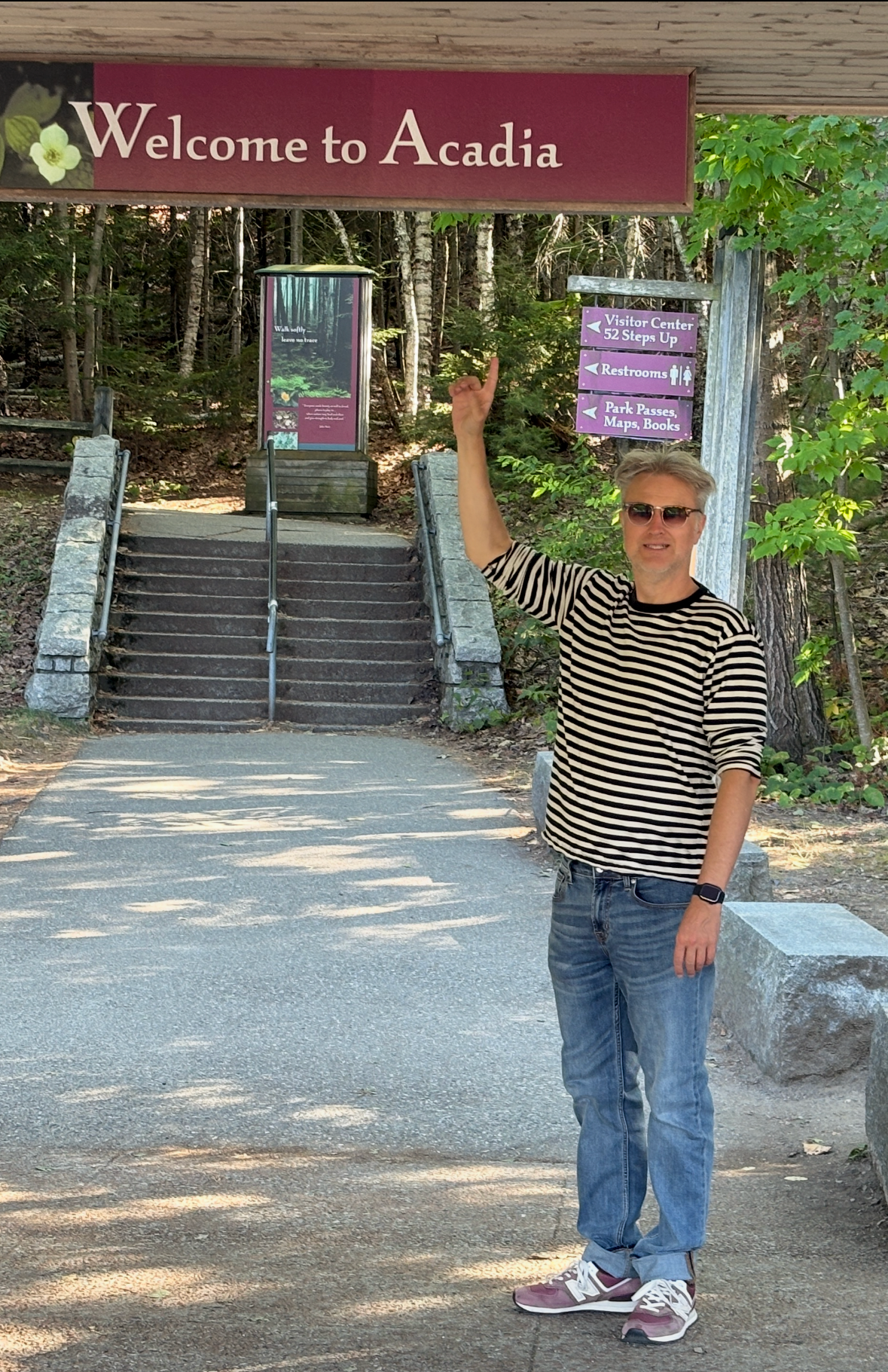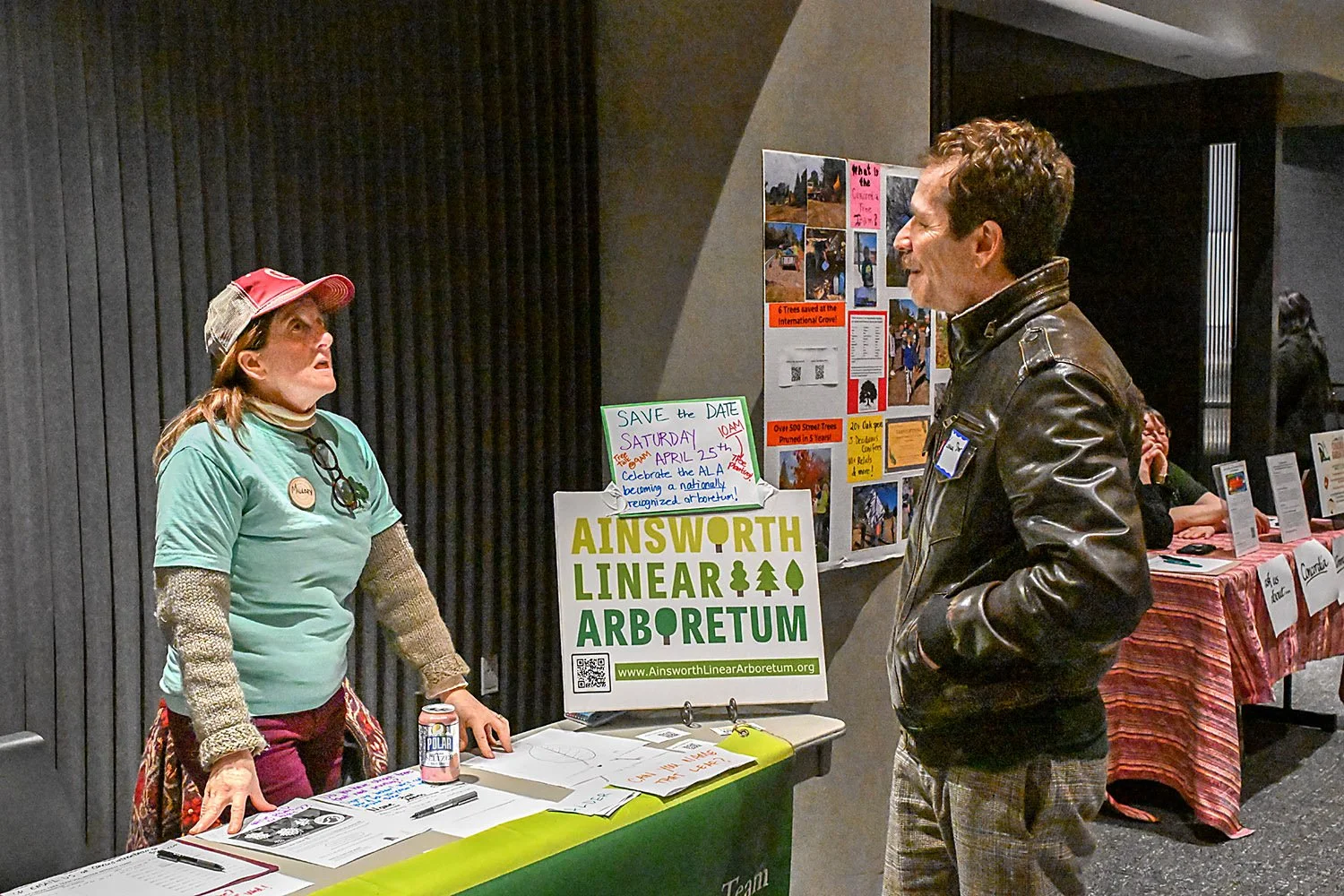
Your up-standing, long time neighbors.
Explore the living tree library right from the sidewalk in the Woodlawn, Vernon, and Concordia neighborhoods of northeast Portland, Oregon.
View the Interactive Map
View every tree in the Arboretum, with natural details, history, and scientific and common names

The story of the Ainsworth Linear Arboretum, officially designated by the City of Portland, reflects its neighborhoods: Woodlawn, Concordia, and Vernon.
Learn more about how the Arboretum came to be and who stewards the trees today.
Featured from the Tree Library
Spanish fir is more tolerant of heat and drought than fir trees native to the Pacific Northwest.
Blue Spanish fir
Abies pinsapo ‘Glauca’ (Spain, Morocco)
Location: Easternmost tree in the median block between 8th and 9th avenues.
A blue form of a true fir from the mountains of Spain and North Africa. Maturing at around 35-40' tall, the ‘Glauca’ cultivar is about half the size of the species. Spanish fir is the official tree of the southern Spanish province of Andalucia.
Summit cedar is a relict from the ancient forests of the long-ago Southern Hemisphere supercontinent of Gondwana.
Summit cedar
Athrotaxus x laxifolia (Tasmania)
Location: In the median block north of Alberta Park. It is the fourth tree from the east.
A naturally occurring hybrid of two conifer species found in the mountains of Tasmania. A warming climate is endangering the parents and this hybrid as wildfires increase in frequency and intensity.
Leaves of Turkish hazel turn yellow in autumn.
Turkish hazel
Corylus colurna (Turkey and western Asia, SE Europe)
Location: Second tree from the east in the median block between 8th and 9th avenues.
A cousin of the hazelnut (filbert) tree, the nuts of Turkish hazel are edible but mostly eaten by squirrels. Not affected by eastern filbert blight. Makes an upright tree 40' to 80' with toothed leaf edges.


![Save the Date[s]: Median Work and Tree Parties— but especially April 25th!](https://images.squarespace-cdn.com/content/v1/5fb1f50406d425063547032b/1752437164956-QDBPX4TE3DNO9H32LQUM/Lizzy+Lori+and+Mallory+Sunday+Parkways.jpg)





